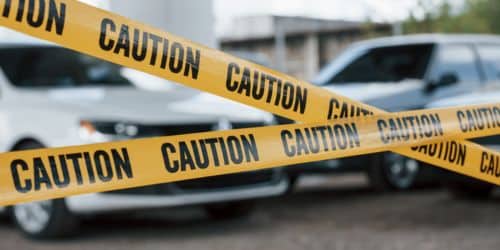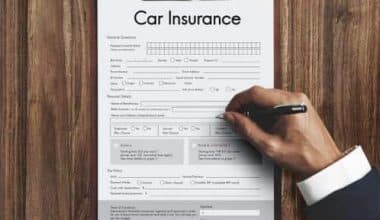In Chicago, individuals without a vehicle but who are required to carry SR22 insurance coverage can do so through non-owner SR22 insurance. An SR22 is a document that demonstrates to a state that you have the required minimum amount of car liability insurance coverage. Your car insurance company will submit this document to the government. There are other names for this document, including “SR-22 bond” and “certificate of financial responsibility.”
Sr22 Insurance
Some states and courts mandate that drivers carry SR-22s or certificates of financial responsibility. There is no such thing as SR-22 insurance; rather, it is a form required by many states. Your state may require you to carry a certain amount of liability insurance on your vehicle, and this form serves as proof that you do. Despite the common misconception, it is not an actual insurance policy. Instead, it merely shows that you have liability insurance that satisfies the minimal standards set forth by your state. An FR-44 is the name of a similar form used in Virginia.
You will be able to see your SR-22 on your driving record after you get one. The entry will remain on your permanent record for as long as you are mandated to maintain certification. It is possible that to have a driver’s license that has been revoked or suspended reinstated, you will be required to provide a certificate known as an SR-22 to the insurance or motor vehicle department in your state. In addition to that, you will be responsible for paying any fees that may be required by your state.
Who Needs an Sr-22 Certificate?
While some states may mandate an SR-22 for all drivers, others have different requirements. For example:
- A driver’s license suspension, two convictions for driving without liability insurance, or a civil judgment against the driver all necessitate the filing of an SR-22 with the Texas Department of Insurance.
- Drivers and vehicle owners in Washington who have been convicted of certain traffic violations, have had bail forfeited for those offenses, have failed to pay judgments, or have been involved in accidents are required to carry SR22 insurance.
Still, an SR-22 is not required of all drivers. But in general, you might need one if you do any of the following:
- Are found driving a vehicle without a valid license or insurance
- Possess a conviction for DUI or DWI
- Have your license revoked for frequent traffic infractions or accidents
- Still owe money for child support that was ordered by the court
- Repeatedly commit traffic violations
- Requesting a hardship or temporary driver’s license
How Long Should You Keep an SR-22?
Your state’s regulations will also dictate how long you must keep your SR-22 certificate active. Some states allow you to request the cancellation of your permit as soon as one year after your license has been reinstated. Alternatively, you might have to keep it for as long as five years. Washington State chooses to be in the middle by requiring a minimum of three years.
An SR-22 is required for a minimum of three years in the majority of states. The period can be as long as five years in states like California. The reasons for submitting an SR-22 form can affect the specifics of how long it takes to do so.
How Does SR22 Insurance Work?
If you need to prove to the state that you have adequate auto insurance, you can get an SR-22 form. In other words, it is proof that your car insurance provider is covering you legally, as required by the state. Your insurance company will typically submit the required forms to the state on your behalf.
It could also be known as an SR-22 bond or a certificate of financial responsibility. The equivalent of this form, requiring more extensive auto insurance coverage than the bare minimum, is known as an FR-44 in both Florida and Virginia.
An SR-22 is not insurance, but rather a form that your auto insurer must submit to your state’s DMV to prove that you are covered in the event of an accident. Insurance companies typically charge a nominal fee to process the form, and it may raise your premiums if applicable.
Your state may mandate an SR-22 if you have a history of moving violations, such as a DWI or driving without insurance. A certificate of financial responsibility (SR22) must be filed with the state to demonstrate that you have the legal minimum liability coverage for your vehicle.
Guide to Obtaining Your SR-22 Certificate
Obtaining an SR-22 certificate is impossible without first having a valid insurance policy in place. That coverage must, at a minimum, meet the state-mandated minimum for liability insurance. Obtaining an SR-22 certificate is easy, as many insurance companies provide them. The certificate itself only requires a small financial investment, likely no more than $25 for filing. However, the cost of your auto insurance policy after being mandated to obtain an SR-22 will likely be significantly higher than it was before. The reason is that you are deemed a greater risk to the insurance company.
When you have obtained an SR-22 certificate, your insurance provider will submit it on your behalf. If you have fulfilled any other requirements set forth by your state, you should now be able to have your suspended or revoked license reinstated.
How Much Does SR-22 Insurance Cost?
In most states, the fee to file an SR-22 is no more than $25, though this will vary by the insurance provider.
Your car insurance premiums may go up if you need to file an SR-22. The price hike will be directly proportional to the cause of the SR-22’s malfunction. In other words, the SR-22 will not lower your premiums if you have a history of traffic violations, traffic accidents, driving without insurance, or driving under the influence.
Our survey of major insurers found that SR-22 insurance for drivers with a DUI conviction costs an average of $3,270 per year.
However, your underlying auto insurance premiums will be priced differently depending on the circumstances that necessitate filing an SR-22. Someone who does not pay child support may have to pay more than someone with a clean driving record and no at-fault accidents or DUI/DWI charges on their record.
However, there are steps you can take to ensure you are getting the most competitive rate possible. You can accomplish this by comparing various insurance plans. Compare auto insurance rates from multiple providers by requesting quotes online.
Sr22 Insurance Without Vehicle
Not having a car may not stop you from needing an SR22 or FR-44 filed on your behalf to get your driver’s license back. Getting non-owner car insurance from some companies will let them file it for you. Drivers without a car but who occasionally use other people’s vehicles need Operator (Non-Owner) SR22 insurance. This SR22 insurance offers liability protection in the event of an accident while operating a vehicle that is not your own. The state requires a certain amount of liability, and the insurance company files the SR22 form with the state DMV on the insured person’s behalf. It is often needed for drivers who do not own a car but need to show they are financially responsible.
If you borrow or rent a car and cause damage to someone else’s property, this policy will pay for it. Avoiding coverage gaps is another benefit of non-owner insurance. Insurers may charge higher rates to drivers who have coverage gaps because they pose a greater financial risk. If you maintain continuous insurance coverage after your SR-22 is no longer required, you may be eligible for lower premiums.
How Does it Work?
If you are a driver who is mandated to carry SR22 insurance but does not own a vehicle, you may be eligible for a special form of auto insurance known as “non-owner SR-22 insurance.” Having proof of such an insurance policy on file may be required to reinstate a suspended driver’s license.
Your SR-22 form will, in most cases, serve as proof that you carry the minimum liability insurance on any vehicles you own. Non-owner SR-22 insurance is available for those who do not own a vehicle. This will protect you while operating any vehicle, including a friend’s. To get your suspended driver’s license reinstated in most states, you must provide proof of financial responsibility in the form of an SR-22 certificate from an auto insurance policy issued to you as a non-owner.
When obtaining an SR-22, you may be subject to additional charges. One example is the SR-22 form, which may incur a filing fee in your state. To file the form with your state, insurance companies typically charge a small fee, $25 to $50.
When you get an SR-22 policy, you will usually have to pay the filing fee right away. Some insurance companies will charge you this fee only once, while others will continue to do so each time you renew your policy for as long as you need the SR-22.
SR22 Insurance in Chicago
When your driving privileges are temporarily revoked as a result of a traffic infraction or suspension, SR22 insurance may be required in Chicago. License suspensions in Chicago can result from things like repeated traffic offenses, failing to show up in court, and falling behind on child support payments.
You will need SR22 insurance for a minimum of three years if you drive in Chicago. As an alternative to purchasing SR-22 insurance, you may post a bond with the state for at least $70,000. In many states, drivers whose licenses have been suspended must carry what is commonly known as “SR-22 insurance.”. This is a result of the following reasons:
- DUI / DWI convictions
- Multiple traffic offenses
- Driving without insurance
- A lack of valid license plates
- Excessive points on one’s driving record
The Illinois Secretary of State requires drivers to file proof of financial responsibility forms known as SR-22s.
With the SR-22 certificate, you can prove to the Illinois Secretary of State that you carry liability insurance at least equal to the state minimum. Chicago requires SR22 insurance for at least three years, though the exact length of time will vary depending on the individual’s driving record at the time of the requirement. Be sure to double-check your paperwork and verify the required time frame with the Secretary of State.
How to Get SR-22 Insurance in Chicago
To obtain SR22 insurance in Chicago after having your license suspended, you must complete the following procedures:
Get in touch with an insurer that can process your SR-22 application. Your insurance provider must submit an SR-22 on your behalf; however, not all Chicago insurers cover high-risk drivers; therefore, you should contact multiple providers before settling on one.
The processing time for an SR-22 is up to 30 days, but once it is done, you will get confirmation from both your insurance provider and the Illinois Secretary of State.
You must renew your SR-22 annually in Chicago. According to state law, you must give 45 days’ notice before renewing your SR-22.
When Do You Need It?
If you want to get your license back after the DMV is suspended or revoked, you need an SR22.
You might need to show proof that you filed an SR-22 for several reasons, such as: being suspended for driving while drunk; not paying fines or parking tickets; getting into an accident without insurance; or even failing the emissions test and having your license taken away.
What Does SR22 Insurance Do?
To prove that you have the minimum liability insurance required by your state, you must file a form known as an SR-22 with the appropriate authorities. In Virginia and Florida, an SR-22 is also known as a FR-44. It is also sometimes called a certificate of financial responsibility.
When Do You Need SR22 Insurance?
Driving without insurance or a valid license is a common reason for this. You may also need an SR-22 for the following reasons: DUI or DWI conviction. Not having sufficient auto insurance.
How Much Is an Sr-22 in CA?
In California, a driver with a DUI will pay an average of $1,420 per year for minimum coverage and $3,375 per year for full coverage on their SR-22 insurance. Filing an SR-22 may be necessary for even relatively minor traffic offenses like speeding or being at fault in an accident.
How Much Is an Sr-22 in Texas?
The average annual cost of Texas SR-22 insurance for a driver with a DUI conviction is $1,747 for full coverage and $855 for minimum coverage. Accidents where you were at fault, reckless driving, or excessive speeding could all necessitate SR-22 coverage.
What is an SR-22 in Virginia?
When a driver in Virginia files an SR-22, they are demonstrating to the state that they have the minimum liability insurance required by law.
- Bodily injury liability: $30,000 per person and $60,000 per accident
- Property damage liability: $20,000 per accident
- Injury claims from uninsured or underinsured drivers: $30,000 per person/$60,000 per accident
- Damage to property caused by an uninsured or underinsured driver: $20,000 per accident
Some types of traffic violations in Virginia that could mean you need to file an SR-22 form are:
- Having no insurance
- Submitting a false insurance claim
- Unsatisfied judgments
- Any conviction for an incident that leaves a person dead or seriously hurt
- Any violations of the law governing vehicles are considered felonies.
How Long Does an SR-22 Stay on Your Record in California?
After receiving a ticket, “high-risk” drivers must fill out an SR-22 form. The court or the state Department of Motor Vehicles will notify a driver that they must file an SR-22. When you get an SR-22 in California, it will stay on your record for three to five years.
What are the Requirements for SR-22 in California?
In California, as in every other state, an SR-22 is not insurance itself but rather a “Certificate of Financial Responsibility” proving that you have the legal minimum liability coverage. To legally drive in California, you must have bodily injury liability coverage of at least $15,000 per person, $30,000 per accident, and $5,000 for property damage liability.
Can You Drive With an Sr-22 in Texas?
To keep your driver’s license in good standing in Texas, you must carry liability insurance at all times and file an SR-22 every two years. A DWI conviction in Texas could necessitate the purchase of SR-22 insurance for the driver.
Conclusion
To get your driver’s license reinstated after a suspension or revocation, you may need to first get an SR-22 certificate. The SR-22 is a document that your insurance provider issues, not insurance. It is just proof that your auto policy provides the minimum level of liability insurance required by law. Keep in mind that even if you reside and drive in a different state, your licensing state may still require you to file an SR-22. Proof of SR-22 coverage from your home state may be required to obtain a license in the state in which you are temporarily residing.
- BEST CHEAP CAR INSURANCE IN CHICAGO: 2023 Update
- Can You Get Car Insurance Without a License? Explained!
- Certificate of Liability Insurance: Definition & How to Get One
- CAR INSURANCE COLORADO: Coverage, Cost & Best Options
- ACORD CERTIFICATE OF INSURANCE: What Is It & How to Get It?






